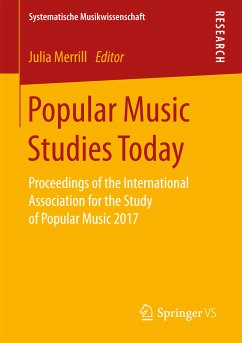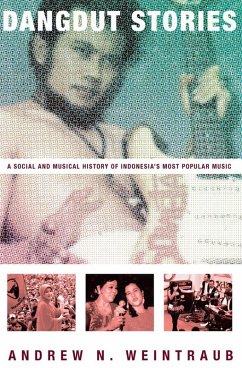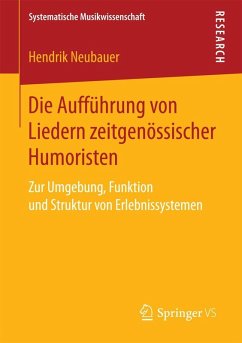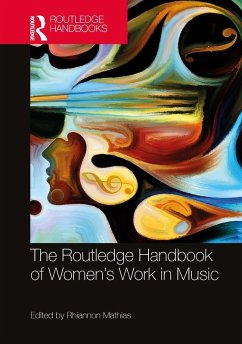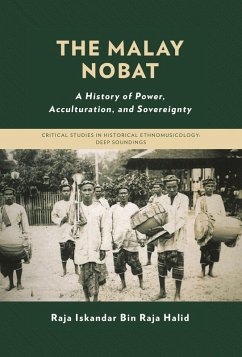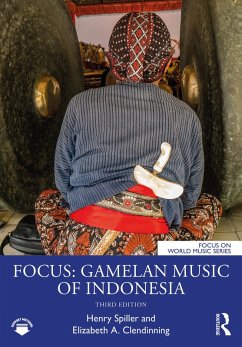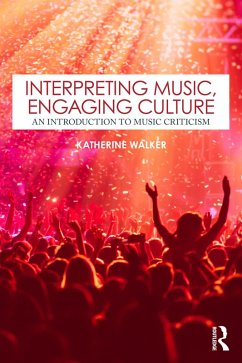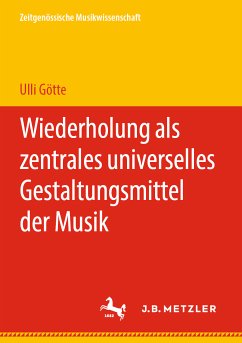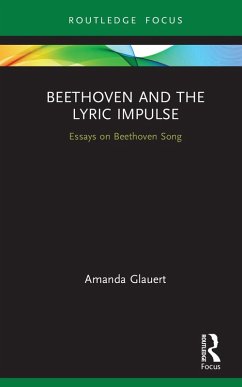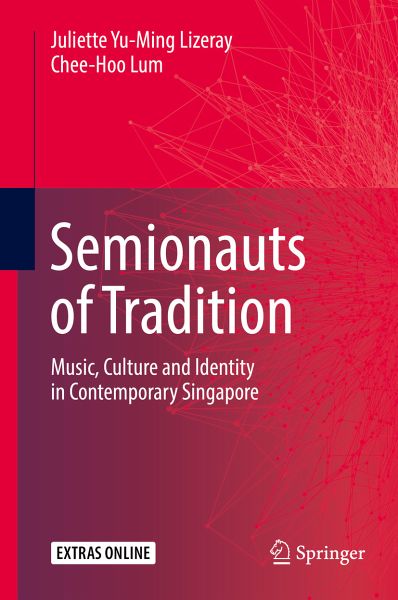
Semionauts of Tradition (eBook, PDF)
Music, Culture and Identity in Contemporary Singapore
Versandkostenfrei!
Sofort per Download lieferbar
72,95 €
inkl. MwSt.
Weitere Ausgaben:

PAYBACK Punkte
36 °P sammeln!
This book explores questions of identity, cultural change and creativity from the perspective of contemporary musicians currently engaged in redefining Asian musical traditions and notions of heritage in Singapore. Drawing on the fields of anthropology, cultural studies, and ethnomusicology, Semionauts of Tradition focuses on emerging millennial musicians and explores the complex and interwoven cultural, national, musical, and personal identifications in their discourse and music practice. It shows how they create fluid, hybrid and counter-hegemonic forms of expression, representation and iden...
This book explores questions of identity, cultural change and creativity from the perspective of contemporary musicians currently engaged in redefining Asian musical traditions and notions of heritage in Singapore. Drawing on the fields of anthropology, cultural studies, and ethnomusicology, Semionauts of Tradition focuses on emerging millennial musicians and explores the complex and interwoven cultural, national, musical, and personal identifications in their discourse and music practice. It shows how they create fluid, hybrid and counter-hegemonic forms of expression, representation and identity through their navigation of diverse cultural worlds, their incorporation of a myriad of elements into their own identities and music, and their contestations of preconceived notions of difference and tradition. The book exposes paradoxes within current thinking about 'multiracialism', 'racial harmony', the 'East/West divide' and 'tradition versus modernity,' and proposes new ways of understanding identity, cultural change and creativity in a highly globalised, and diverse nation. This highly-original polyvocal account of a burgeoning music scene includes photos, musical scores and reaction pieces by musicians. It is a timely contribution to global discussions about 'multiculturalism from below,' as well as musical, cultural and national identities in a postcolonial Southeast Asian setting, from the viewpoint of artists engaged in creative meaning-making.
"This captivating book explores - with tremendous intellectual vitality - the dialectic relationships between the cultural, ethnic and national identities of Singapore's creative youth, and their creative practice. A compelling read!" Dr Liora Bresler, Professor, University of Illinois
"A well-researched and thoughtfully well-written book about the diverse forms of music in Singapore and the musicians who created it." - Jeremy Monteiro, jazz pianist, singer, composer, and music educator "This wonderfully lucid and compelling book analyzes the musical and cultural creativity of young Singaporean musicians growing up in a multicultural and ethnically plural society, bringing Asian and Western musical cultures into creative dialogue." - Dr Deborah Pacini Hernandez, Professor Emeritus, Tufts University "A thought provoking dialogue on contemporary Singaporean music!" -Eric Watson, composer, conductor, music technologist and pedagogue
"This captivating book explores - with tremendous intellectual vitality - the dialectic relationships between the cultural, ethnic and national identities of Singapore's creative youth, and their creative practice. A compelling read!" Dr Liora Bresler, Professor, University of Illinois
"A well-researched and thoughtfully well-written book about the diverse forms of music in Singapore and the musicians who created it." - Jeremy Monteiro, jazz pianist, singer, composer, and music educator "This wonderfully lucid and compelling book analyzes the musical and cultural creativity of young Singaporean musicians growing up in a multicultural and ethnically plural society, bringing Asian and Western musical cultures into creative dialogue." - Dr Deborah Pacini Hernandez, Professor Emeritus, Tufts University "A thought provoking dialogue on contemporary Singaporean music!" -Eric Watson, composer, conductor, music technologist and pedagogue
Dieser Download kann aus rechtlichen Gründen nur mit Rechnungsadresse in A, B, BG, CY, CZ, D, DK, EW, E, FIN, F, GR, HR, H, IRL, I, LT, L, LR, M, NL, PL, P, R, S, SLO, SK ausgeliefert werden.
Alle Preise in Euro und inkl. der gesetzl. MwSt. | Innerhalb Deutschlands liefern wir preisgebundene Bücher versandkostenfrei. Weitere Informationen: bitte hier klicken
Support
Bitte wähle dein Anliegen aus:
Rechnungen
Bestellstatus
Retourenschein
Storno



